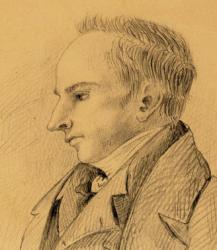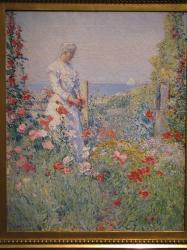Planning worship?
Check out our sister site, ZeteoSearch.org,
for 20+ additional resources related to your search.
- |
User Links
Person Results
Arnold Hagen
b. 1909 Person Name: Arnold Hagen, b. 1909 Translator of "Just One Step" in Ambassador Hymnal
Arnold Hagen
Chrétien Urhan

1790 - 1845 Person Name: Chrétien Urban Composer of "RUTHERFORD" in The New Christian Hymnal Chrétien Urhan (Baptised as Christian Urhan; 16 February 1790, Montjoie - 2 November 1845, Belleville) was a French violinist, organist, composer and player of the viola and the viola d'amore.
His father first introduced him to the violin. He was first mentioned in 1804 by Joséphine de Beauharnais that he had replaced a violinist for a performance of Haydn's The Creation, at the young age of 14. From there he was sent to work in Paris, where he took instruction from Jean-François Lesueur, master of the chapel of the Tuileries. He also learned from prominent teachers such as François-Antoine Habeneck, Rodolphe Kreutzer and Pierre Rode. He was invited to join the imperial chapel as a violinist in 1810.
In this period the young Urhan shared lodgings with his friends the harpist Franz Anton Stockhausen (father of Julius Stockhausen) and the painter Carl Begas the elder (who was studying with Antoine Jean Gros, 1813-15). In 1815, through a Quartermaster in the Prussian army of occupation, Urhan and Stockhausen (who corresponded with Beethoven) obtained a score of Beethoven's Eroica Symphony and set it before Habeneck, with the result that the work was introduced to Paris. The two were among Amis de Beethoven, or Beethoven-Bruder in Paris, together with Wilhelm Mangold and others. In the early 1820s the violinist Sina, a member of the string quartet led by Schuppanzigh for Andreas Razumovsky, with Urhan gave new encouragement to Habeneck to continue with the master's works. Until Stockhausen's marriage to the singer Margarethe Schmuck, a member of their circle, in 1825, he lived with Urhan, who remained a lifelong friend.
In 1816, Urhan was appointed solo viola at the Opéra de Paris, and became solo violinist in 1825. Strongly Catholic, he was also appointed the organist at the Church of Saint-Vincent-de-Paul in Paris in 1827, a position that he held until his death. In this position he met the young Franz Liszt, with whom he played chamber music, and also the Beethoven Kreutzer Sonata in a mass. A number of composers wrote prominent parts for Urhan. Meyerbeer composed for him solo viola and solo viola d'amore parts in his opera Les Huguenots, and Rudolph Kreutzer, the solo viola d'amore part in his opera Le Paradis de Mahomet. In 1834, Berlioz wrote his Harold en Italie for orchestra with viola obbligato at the request of Niccolò Paganini, who refused to play the work. Berlioz offered the solo viola part to Urhan and the premiere was given on 23 November 1834 at the Paris Conservatory.
According to Ernest Legouvé, he was both entirely religious and entirely devoted to music. He lived like a medieval ascetic, abstaining from almost everything except his daily visit to the Café des Anglais. His love for theatre music created a severe inner conflict, which he overcame by asking the permission of the Archbishop to play in the orchestra of the Opéra (of which he was Leader), being told it was a matter for his own conscience. He accepted this by always being seated with his back to the stage, so that he never saw the singers or dancers for whom he played, even when providing solo accompaniment for a dancer.
Legouvé thought there were several greater violin virtuousi in Paris than Urhan, but that he outshone them through his profound knowledge of the masters and respect for their music, and through the indefinable quality of style which he brought to them. He often differed with Habeneck, when the conductor wanted to make cuts, and actually published and signed an article against Habeneck when he withdrew some double-basses from Beethoven's Choral Symphony. He did not merely guard the reputation of the old masters, but he was also a fierce advocate and defender of the new, and of those of the future. He was the first to introduce a song of Schubert's into France ('L'Adieu'). For Legouvé, to see him play was like watching Fra Angelico painting in his cell, a medieval mystic at work.
The Stockhausens visited Urhan in his fifth-floor Paris apartment in 1839, and found him living in great simplicity in two rooms, with a piano and five stools in his bedroom, where they sat and were made very welcome. In 1843 Urhan encouraged their son Julius while he was in Paris. In November 1845 Julius wrote to inform his parents of Urhan's death. He had been living in pitiable conditions in Belleville, and began to refuse his food: thoughts of suicide made him resolve to starve himself to death. He suffered agonies of pain and descended into a frenzy, giving terrible grief to his friends, none of whom could talk him out of it. All interventions failed, and Urhan, whom the Stockhausen and Legentil families considered their dear friend, and who had formerly taken communion every Sunday, lost his faith in God and his desire for life. Thus he died, quietly at last with friends at his bedside, on 2 November 1845.
--en.wikipedia.org/wiki/ (excerpts)
Chrétien Urhan
Tali Esen Morgan
1858 - 1958 Person Name: Dr. Morgan Author of "All My Doubts I Give to Jesus" in The New Canadian Hymnal
Tali Esen Morgan
John McPherson
Composer of "LEBANON" in Songs of Glory-Land John McPherson (Late 19th Century)
John McPherson
Samuel Johnson

1822 - 1882 Person Name: Rev. Samuel Johnson Author of "Father, in Thy mysterious presence kneeling" in The Hymnal Johnson, Samuel, M.A, was born at Salem, Massachusetts, Oct. 10, 1822, and educated at Harvard, where he graduated in Arts in 1842, and in Theology in 1846. In 1853 he formed a Free Church in Lynn, Massachusetts, and remained its pastor to 1870. Although never directly connected with any religious denomination, he was mainly associated in the public mind with the Unitarians. He was joint editor with S. Longfellow (q. v.) of A Book of Hymns for Public and Private Devotion, Boston, 1846; the Supplement to the same, 1848; and Hymns of the Spirit, 1864. His contributions to these collections were less numerous than those by S. Longfellow, but not less meritorious. He died at North Andover, Massachusetts, Feb. 19, 1882. His hymns were thus contributed:—
i. To A Book of Hymns, 1846.
1. Father [Saviour] in Thy mysterious presence kneeling. Divine Worship.
2. Go, preach the gospel in my name. Ordination.
3. Lord, once our faith in man no fear could move. In Time of War.
4. O God, Thy children gathered here. Ordination.
5. Onward, Christians, [onward] through the region. Conflict. In the Hymns of the Spirit, 1864, it was altered to "Onward, onward through the region."
6. Thy servants' sandals, Lord, are wet. Ordination.
7. When from Jordan's gleaming wave. Holy Baptism.
ii. To the Supplement, 1848.
8. God of the earnest heart. Trust.
iii. To the Hymns of the Spirit, 1864.
9. City of God, how broad, how far. The Church the City of God.
10. I bless Thee, Lord, for sorrows sent. Affliction— Perfect through suffering.
11. Life of Ages, richly poured. Inspiration.
12. Strong-souled Reformer, Whose far-seeing faith. Power of Jesus.
13. The Will Divine that woke a waiting time. St. Paul.
14. Thou Whose glad summer yields. Prayer for the Church.
15. To light that shines in stars and souls. Dedication of a Place of Worship.
Of these hymns No. 8 was "Written for the Graduating Exercises of the Class of 1846; in Cambridge Divinity Schools ; and No. 10 “Written at the request of Dorothea L. Dix for a collection made by her for the use of an asylum." It is undated. A few only of these hymns are in use in Great Britain. [Rev. F. M. Bird, M.A.]
-- John Julian, Dictionary of Hymnology (1907)
Samuel Johnson
John Hampden Gurney
1802 - 1862 Person Name: John H. Gurney Adapter of "We Saw Thee Not" in The Cyber Hymnal Gurney, John Hampden, M.A., eldest son of Sir John Gurney, a Baron of the Exchequer, was born in Serjeants’ Inn, London, Aug. 15, 1802, and educated at Trinity College, Cambridge, where he graduated in 1824. On taking Holy Orders he became Curate of Lutterworth (1827-1844), and subsequently Rector of St. Mary's, Marylebone, and Prebendary of St. Paul's Cathedral. He died in London, March 8, 1862. The Society for Promoting Christian Knowledge and other religious societies had his cordial sympathy, and received his active support. His publications include several small volumes in prose, and the following:—
(1) Church Psalmody; Hints for the improvement of a Collection of Hymns published by the Society for Promoting Christian Knowledge, 1853; (2) A Collection of Hymns for Public Worship. Lutterworth, 1838. This contains 300 hymns, and is known as his Lutterworth Collection; (3) Psalms and Hymns for Public Worship, selected for some of the Churches of Marylebone. London, 1851. This collection of 300 hymns and psalm versions is known as his Marylebone Collection. The Preface is signed by "Charles Baring," "Thomas Garnier," and "John Hampden Gurney," but the work was practically done by Gurney.
To the Lutterworth Collection 1838, he contributed :—
1. Earth to earth, and dust to dust. Burial.
2. Great King of nations, hear our prayer. Fast Day.
3. Lord, as to Thy dear Cross we flee. Lent.
4. Lord, at Thy word the constant sun. Harvest.
5. Saviour, what wealth was Thine. Passiontide.
6. Soon to the dust we speed. Heaven anticipated.
7. Thou God of mercy and of might. Good Friday.
8. Thou plenteous source of light and love. Advent.
9. Thou Who of old didst raise. Ascension.
10. Through centuries of sin and woe. For Peace.
11. We praise Thee, everlasting God. Te Deum.
These hymns were all signed "J. H. G.," and Nos. 1, 2, 3, 7, 8, 9 and 11, were repeated in the Marylebone Collection, 1851; and to these were added:—
12. Fair waved the golden corn. Child's Hymn.
13. How vast the debt we owe. Offertory.
14. Lord of the Harvest, Thee we hail. Harvest. This is No. 4 above rewritten.
15. Lord, we lift our eyes above. Love of Christ.
In addition to these we are specially indebted to Gurney for, "We saw Thee not when Thou didst come" (q.v.), and "Yes, God is good," &c. (q.v.). Several of the above-named hymns are in extensive use in Great Britain and America. The most popular are annotated under their respective first lines.
-- John Julian, Dictionary of Hymnology (1907)
John Hampden Gurney
Celia Thaxter

1835 - 1894 Person Name: Celia L. Thaxter, 1835-1894 Author of "O Happy, Holy Easter Morn" in The Cyber Hymnal
Celia Thaxter


 My Starred Hymns
My Starred Hymns

